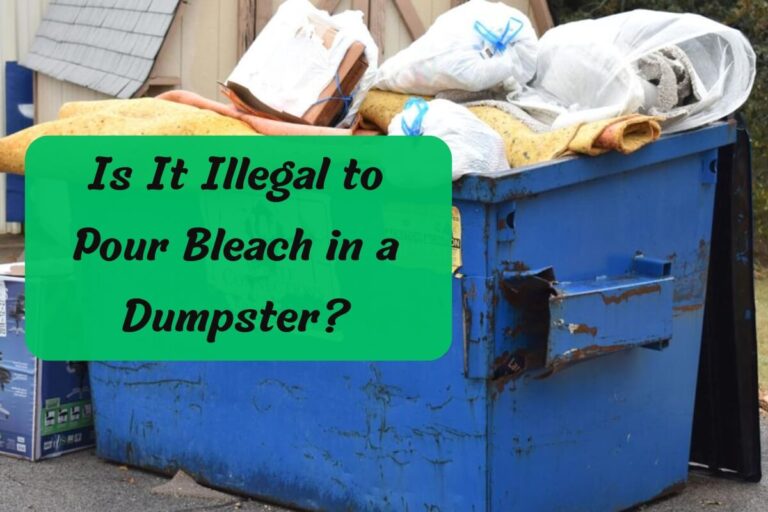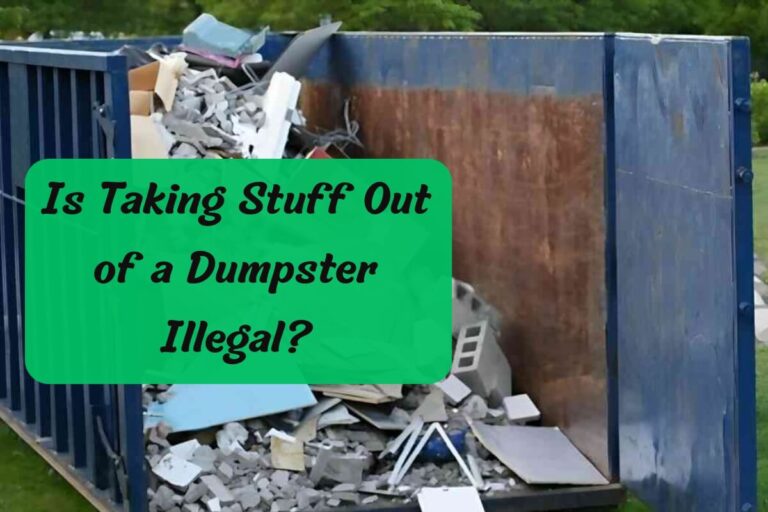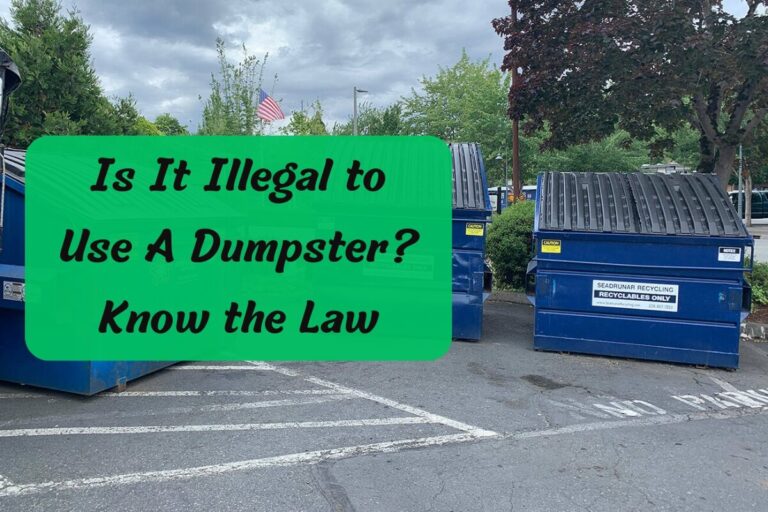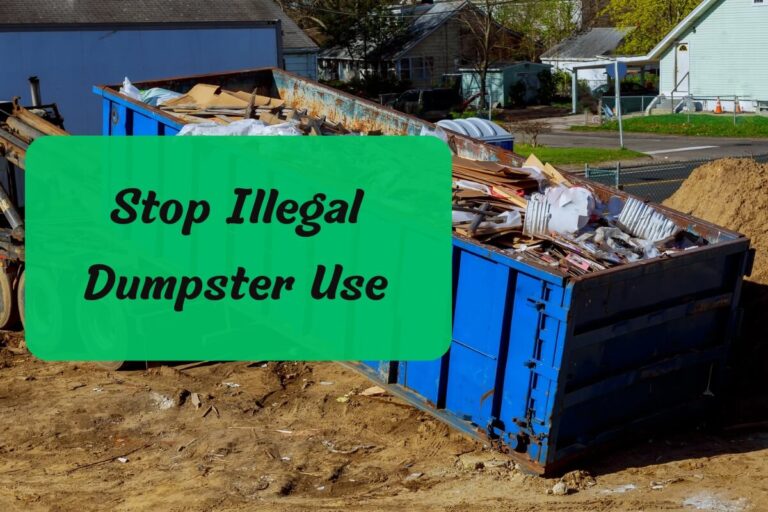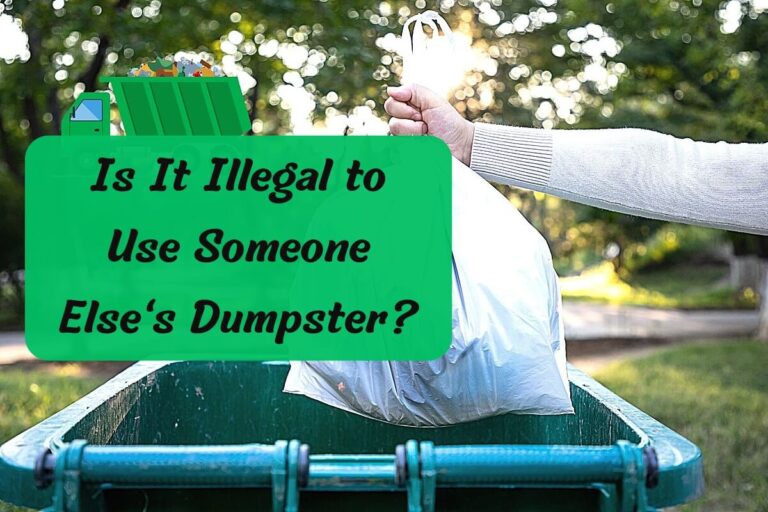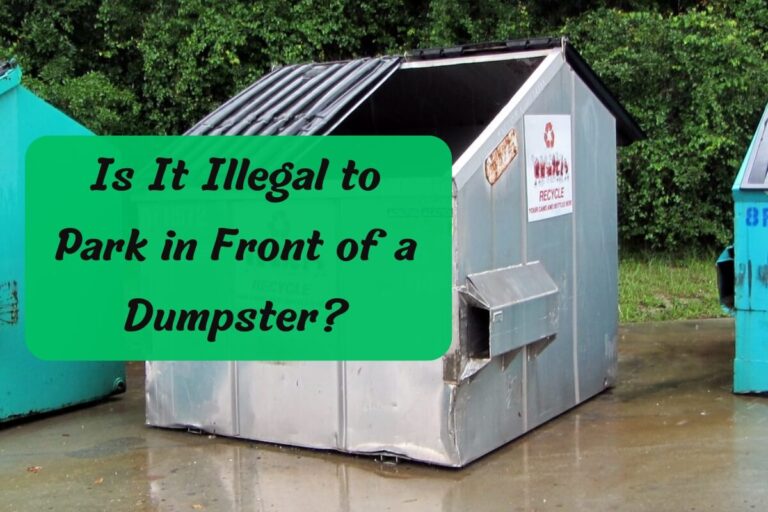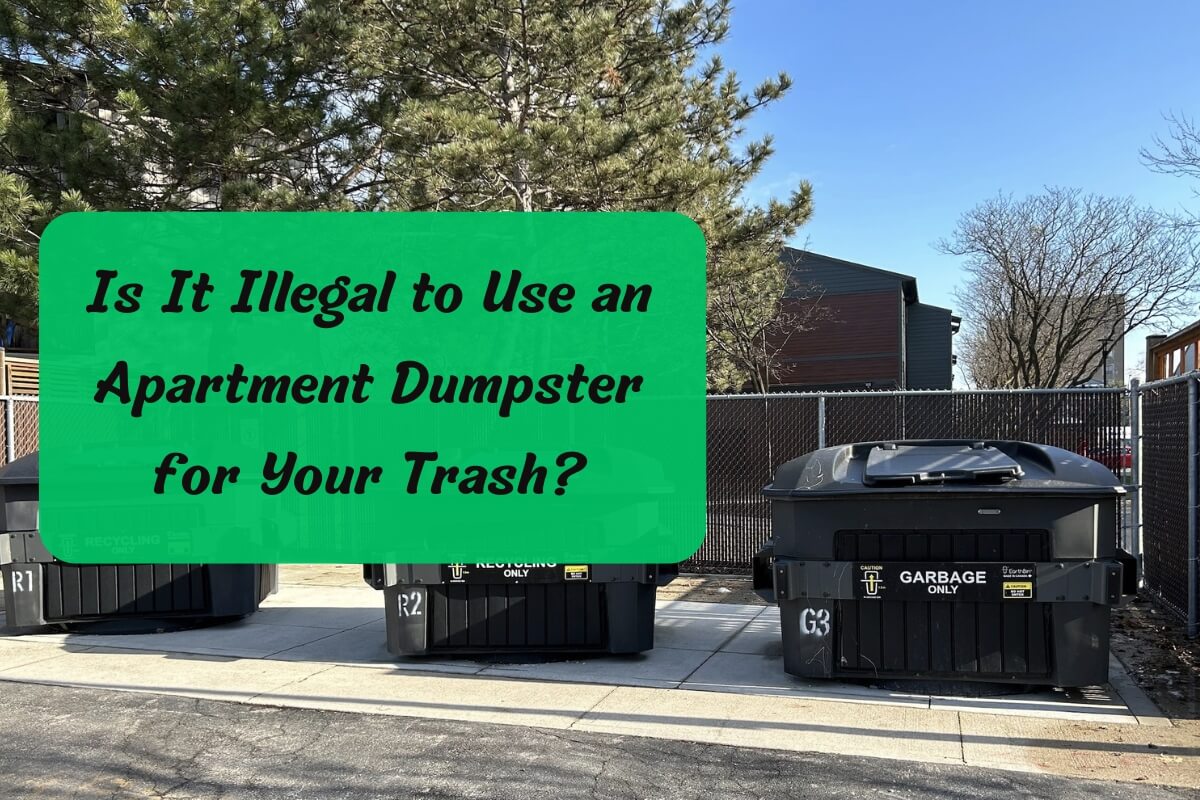
Ever wondered if you can use your apartment complex’s dumpster to get rid of unwanted stuff? You’re not alone! Many renters face this dilemma. Let’s cut to the chase: using an apartment dumpster can be illegal in some cases. Here’s what you need to know about illegal dumping, why it’s prohibited, and the consequences. We’ll also explore better ways to dispose of your waste.
What Constitutes Illegal Dumpster Use?
Illegal dumping refers to the act of disposing of waste or unwanted items in a location where it is not permitted. In the context of apartment living, this typically involves using a dumpster that does not belong to you or your specific residential unit.
Some examples of illegal dumpster use include:
- Throwing bags of household trash into a dumpster designated for a different building or complex
- Dumping large items like furniture, appliances, or construction debris without permission
- Using an apartment dumpster when you are not a resident of that complex
Guidelines and regulations on illegal dumping vary by city or municipality. Using a dumpster not designated for your use is usually a violation.
Why Is Illegal Dumping Prohibited?
At first glance, tossing your trash into a nearby dumpster might seem like a harmless convenience. However, there are valid reasons why illegal dumping is prohibited and taken seriously by property managers and local authorities.
- Dumpsters are Private Property: The dumpsters located at apartment complexes are private property paid for and maintained by the owners or management companies. Just as you wouldn’t want someone else dumping their trash on your personal property, these dumpsters are reserved for the exclusive use of the intended residents.
- Increased Costs for Proper Waste Disposal: When unauthorized individuals use a dumpster, it can lead to overfilling and additional pickups being required. These extra costs are ultimately passed on to the legitimate residents or property owners in the form of higher fees or rent.
- Sanitation and Environmental Concerns: Overfilled dumpsters can result in spilled garbage, attracting pests, and creating unsanitary conditions within the residential area. Additionally, improper disposal of hazardous materials, such as chemicals or electronics, can pose environmental risks if not handled correctly.
Potential Consequences of Illegal Dumping
While the act of throwing a small item into an apartment dumpster might seem insignificant, the consequences of illegal dumping can be quite severe, depending on the circumstances and the specific laws in your area.
- Fines and Penalties: Many cities and municipalities have ordinances in place that impose fines or penalties for illegal dumping. These fines can range from a few hundred dollars for minor offenses to thousands of dollars for more severe cases.
- Legal Action: In extreme cases, or instances of repeated violations, illegal dumping can potentially lead to legal action being taken against the offender. This could result in criminal charges, court appearances, and even potential jail time for serious offenses.
- Retrieval and Proper Disposal: If caught in the act of illegal dumping, you may be required to retrieve the items you have improperly disposed of and take them to an appropriate waste facility at your own expense.
Common Scenarios Around Apartments
Rules on dumpster use are clear, but some apartment living scenarios can be unclear. Let’s look at a few examples:
- New Resident Dumping Leftover Move-In Items: When moving into a new apartment, it’s common to have leftover boxes, packing materials, or unwanted furniture that needs to be discarded. While convenient, using the dumpster at your new complex without explicit permission could still be considered illegal dumping.
- One-Time Offenses: Perhaps you’ve run out of room in your own trash bin, and the dumpster at your complex is readily available. While a one-time offense may seem harmless, it’s still technically illegal and could potentially lead to consequences if caught.
- Repeated or Excessive Violators: In cases where individuals repeatedly or excessively use an apartment dumpster without permission, the likelihood of facing penalties increases significantly. Property managers and local authorities tend to take a dimmer view of chronic violators.
How to Properly Dispose of Bulk Items
Instead of risking the consequences of illegal dumping, there are proper channels to dispose of larger items or bulk trash that may not fit in your regular bins.
- Check with Apartment Management: Many apartment complexes have policies in place for residents to properly dispose of larger items or bulk trash. This may involve scheduling a one-time bulk pickup or using designated areas for these items.
- Locate Nearby Waste Transfer Stations: Most cities and counties have waste transfer stations or landfills where residents can legally dispose of bulk items, often for a fee. These facilities are designed to handle larger volumes of waste and various types of materials.
- Donate Usable Items to Charity: If the items you need to dispose of are still in good condition, consider donating them to a local charity or thrift store. This not only helps divert waste from landfills but also benefits those in need within your community.
Alternatives to Traditional Dumpster Use
If you find yourself in a situation where using a dumpster at your apartment complex is not an option, there are alternative solutions to consider:
- Rent a Small Dumpster for Your Own Use: Dumpster rental companies offer a variety of sizes to accommodate different volumes of waste. Renting a small dumpster for your personal use can be a convenient and legal way to dispose of larger items or conduct a thorough cleanout.
- Schedule Curbside Bulk Trash Collection: Many municipalities offer curbside bulk trash collection services, either on a regular schedule or by appointment. This allows you to legally dispose of larger items without the need for a dumpster.
- Use a Junk Removal Service: Professional junk removal companies can be hired to collect and properly dispose of unwanted items from your apartment. While there is a fee involved, it can be a convenient and hassle-free solution for larger volumes of waste.
Preventing Illegal Dumping
Apartment complexes and property managers have a vested interest in preventing illegal dumping on their premises. To combat this issue, they may implement various measures:
- Dumpster Locks and Enclosures: Securing dumpsters with locks or enclosures can prevent unauthorized access and discourage illegal dumping.
- Surveillance Cameras: Installing surveillance cameras in dumpster areas can act as a deterrent and provide evidence in case of violations.
- Clear Signage about Policies and Fines: Prominently displaying signage that outlines the complex’s policies regarding dumpster use and the potential fines for illegal dumping can raise awareness and discourage violators.
- Regular Checking and Monitoring: Property managers or maintenance staff may conduct regular checks of dumpster areas to identify and address any instances of illegal dumping promptly.
By taking proactive measures, apartment communities can reduce the likelihood of illegal dumping and maintain a cleaner, safer environment for all residents.
In Conclusion
In conclusion, the question of “is it illegal to use an apartment dumpster” has a clear answer: yes, using a dumpster that does not belong to you or your specific residential unit is generally considered illegal dumping. While the consequences can vary depending on the severity of the offense and local laws, they can range from fines and penalties to potential legal action.
It’s crucial to respect the private property rights of apartment complexes and follow proper disposal methods for bulk items or excess waste. By checking with apartment management, utilizing waste transfer stations, or exploring alternative solutions like dumpster rentals or junk removal services, you can avoid the risks associated with illegal dumping.
Remember, responsible waste disposal not only ensures compliance with the law but also contributes to a cleaner and more sustainable living environment for you and your fellow residents. If you found this guide helpful in understanding the legalities surrounding apartment dumpster use, please consider sharing it with others who may benefit from this information.

